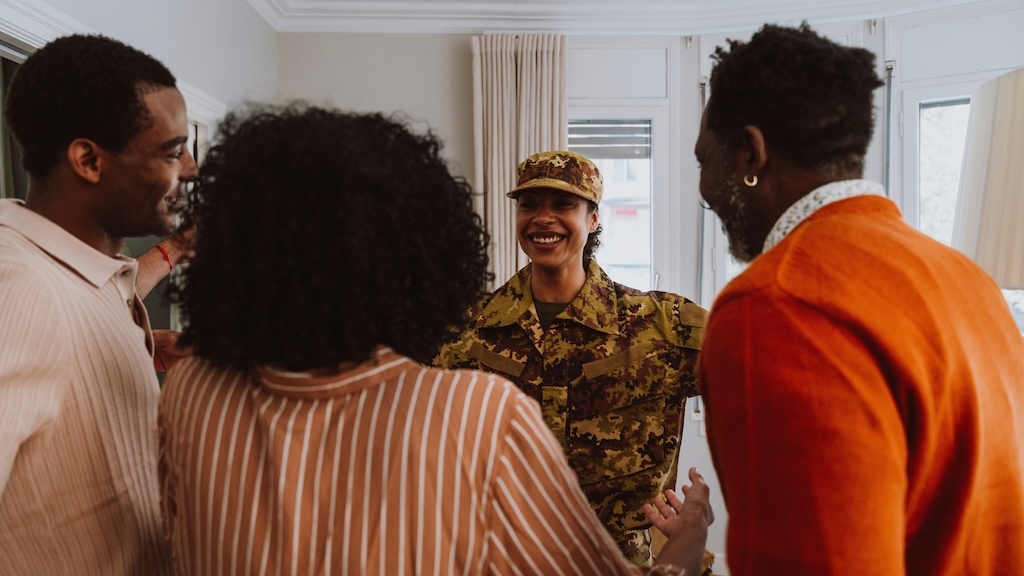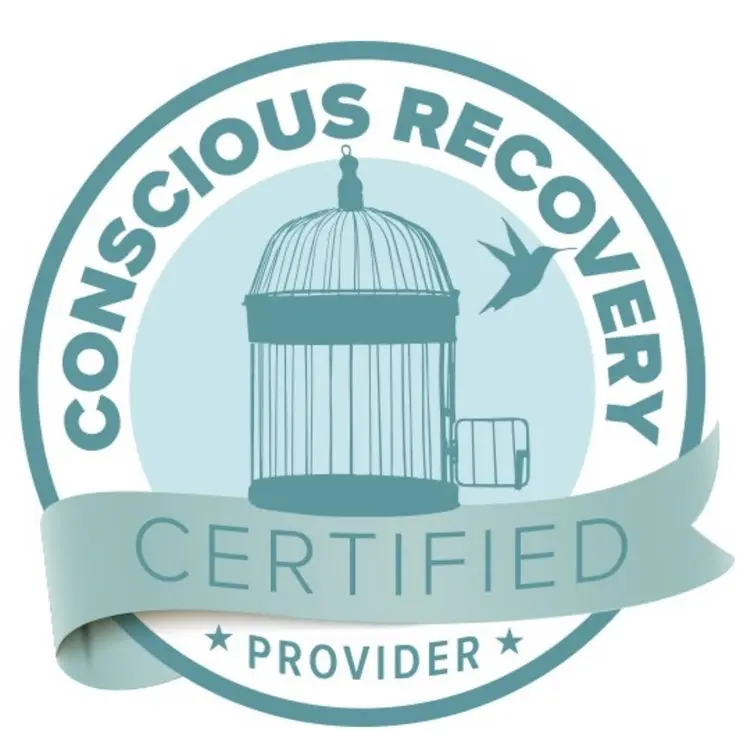Military life creates unique mental health challenges for the spouses and partners of service members. At Monima Wellness Center, we understand that while you may not wear the uniform yourself, you carry significant emotional burdens that deserve specialized support and recognition.
The Hidden Struggles of Military Spouses

The life of a military spouse often involves frequent relocations, extended separations, constant worry about your partner’s safety, and the challenge of maintaining your identity while supporting your service member’s career. Research shows that military spouses commonly contend with elevated constellations of stress factors and greater emotional distress relative to their civilian counterparts.
The burden of what researchers call a “pile-up” of stressors often falls on the non-deployed parent who maintains day-to-day family functioning. While many military spouses successfully manage this stress, those facing additional hardships may be more taxed and less resourced, leaving them more vulnerable to the burdens of wartime deployment.
Common Challenges Faced by Military Spouses
- Frequent relocations disrupt career paths, social connections, and sense of belonging.
- Extended separations during deployments and training periods.
- Constant uncertainty about future moves, deployments, and career decisions.
- Caregiver responsibilities when partners return with physical or psychological injuries.
- Identity struggles while supporting your partner’s military career.
- Reintegration adjustments when service members return from deployment.
- Secondary trauma from supporting partners with PTSD or combat stress.
The Keystone of Military Family Health
Research identifies the non-deployed parent as the critical “keystone” of military family wellbeing—the central family member upon which the family’s functioning and resilience depend. Your psychological well-being serves as an essential buffer to the potentially damaging effects of deployment on children and the family as a whole.
At Monima Wellness Center, we recognize your vital role and understand that supporting your mental health isn’t just about your well-being—it’s about fortifying the entire family system. That’s we offer specialized treatment not only for active duty military and veterans, but also for spouses and families of military members. Evidence indicates similar or even higher rates of mental health problems among military spouses seeking care compared to service members returning from combat, highlighting the importance of accessible, stigma-free mental healthcare for spouses.
The Mental Health Impact

These unique stressors can manifest in various mental health challenges for military spouses:
1. Anxiety
Military life is defined by uncertainty—where you’ll live next, when your partner will deploy, or if they’ll return safely. This constant state of unpredictability can trigger persistent anxiety. Studies indicate that compared to non-military community samples, military spouses report higher scores of perceived stress, with this stress being negatively correlated with both mental and physical well-being. Our trauma-informed approach at Monima includes specialized anxiety treatment that addresses the unique triggers faced by military spouses.
2. Depression
The isolation of frequent moves, career disruptions, and extended separations from your partner and support system can contribute to depression. Our women-centered treatment programs provide a supportive community where you can connect with others who understand these unique challenges.
3. Secondary Traumatic Stress
When supporting a partner with PTSD or other service-related trauma like moral injury, you may experience secondary traumatic stress, absorbing the emotional impact of their experiences. Our comprehensive trauma treatment program helps you process these experiences while maintaining your emotional well-being.
4. Identity and Self-Worth Challenges
Military spouses often put their dreams and identities on hold to support their partners’ careers. This sacrifice can lead to questions about personal worth and identity. Our attachment-based therapy helps you reconnect with your authentic self while navigating the military spouse role.
Professional Mental Health Support & Resources for Military Partners
Seeking professional mental health support is a sign of strength, not weakness. At Monima Wellness Center, we offer:
- Trauma-informed therapy specifically addressing military lifestyle stressors
- Flexible outpatient programs that accommodate the unpredictable schedules military life often demands
- Women-only treatment environment providing a safe space to process your experiences
- Holistic approaches including acupuncture, trauma-informed yoga, and breathwork, to address the physical manifestations of stress
- Specialized treatment for anxiety, depression, PTSD, and relationship challenges
The Role of Social Support

Research consistently demonstrates that social support is a crucial moderator of life stressors’ impact on family wellbeing. Studies have found that strong social support increases the likelihood of a spouse’s positive adjustment to deployment separation by 24%, while perceived support from military leadership and cohesion within the military community predict better post-deployment adaptation.
1. Creating Community Connections
Military life often means leaving friends and family behind. Building new connections can be vital for your mental health:
- Military spouse support groups offer understanding from others in similar situations
- Virtual communities allow you to maintain connections despite geographic changes
- Volunteer opportunities on base or in your community can provide purpose and connection
- Educational programs through military family services can help you connect while building skills
2. Self-Care Strategies for Military Spouses
When supporting a service member, your own self-care might fall to the bottom of your priority list. However, maintaining your wellbeing is essential:
- Establish routines that provide structure during chaotic periods
- Set boundaries around what responsibilities you can reasonably manage
- Make time for activities that nurture your identity outside of being a military spouse
- Practice mindfulness to manage stress and anxiety during challenging periods
- Maintain connections with your own family and friends, even across distances
Navigating Relationship Challenges in Military Partnerships
Military service places unique strains on relationships. Communication challenges during deployments, reintegration periods, and adjusting to the effects of service-related trauma can all impact your connection.
At Monima Wellness, our attachment-based therapy can help you:
- Strengthen communication despite distance and challenging circumstances
- Navigate the complex emotions of reunion after separation
- Build resilience as a couple facing military lifestyle challenges
- Create healthy boundaries that honor both partners’ needs
- Address intimacy challenges that may arise from separation or trauma
Research shows that the psychological well-being of both partners is closely linked to family cohesion and conflict levels. By addressing your own mental health needs, you’re also supporting the creation of a more positive family environment that benefits everyone in the household.
When Your Partner Needs Support

If your service member is struggling with PTSD, depression, substance use, or other mental health challenges, your support is invaluable—but it shouldn’t come at the cost of your well-being.
Learning to:
- Recognize the signs that your partner needs professional help
- Encourage treatment while maintaining appropriate boundaries
- Support recovery without enabling unhealthy behaviors
- Care for yourself while supporting them
- Know when specialized dual-diagnosis treatment might be necessary
The Strength of Military Spouses
The resilience, adaptability, and strength demonstrated by military spouses are remarkable. At Monima Wellness Center, we believe that seeking support isn’t a sign of weakness but a reflection of your commitment to being your best self, for your well-being, relationship, and family.
Our women-centered, trauma-informed approach provides the specialized support military spouses deserve. Whether you’re struggling with anxiety during a deployment, adjusting to life with a partner affected by service-related trauma, or simply need a space to process the unique challenges of military life, our team is here to support you.
Prioritize Yourself. Take The First Step

Your mental health matters. Contact Monima Wellness Center to learn how our outpatient mental health programs can support you through the unique challenges of military spouse life. We offer flexible scheduling options through our Intensive Outpatient (IOP) and Partial Hospitalization (PHP) Programs and a women-only environment where your experiences will be understood and validated. Our programs allow active-duty spouses and partners to maintain connections to their daily responsibilities while receiving structured, effective treatment.
References
1. Green, S., Nurius, P. S., & Lester, P. (2013). Spouse Psychological Well-Being: A Keystone to Military Family Health. Journal Of Human Behavior In The Social Environment, 23(6), 10.1080/10911359.2013.795068. https://doi.org/10.1080/10911359.2013.795068
2. Richer, I., Frank, C., & Guérin, E. (2022). Understanding Special Operations Forces Spouses Challenges and Resilience: A Mixed-Method Study. Military Behavioral Health, 10(2), 100–111. https://doi.org/10.1080/21635781.2022.2067921
3. Rivera, F. I., Guarnaccia, P. J., Mulvaney-Day, N., Lin, J. Y., Torres, M., & Alegria, M. (2008). Family Cohesion and its Relationship to Psychological Distress among Latino Groups. Hispanic journal of behavioral sciences, 30(3), 357–378. https://doi.org/10.1177/0739986308318713
4. Sharita G Knobloch, Fred Volk, Margaret Gopaul, Hannah Murch, Religious Coping, Resilience, and Military Spouse Mental Health, Military Medicine, 2024;, usae368, https://doi.org/10.1093/milmed/usae368



